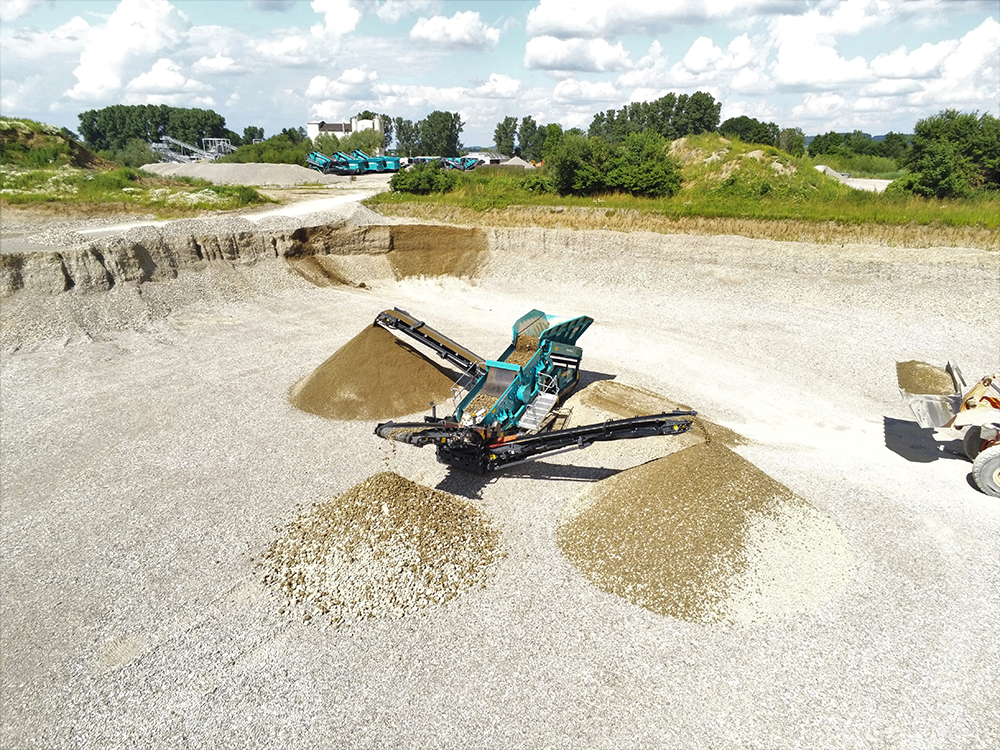
A new range of secondary scalping screens has been launched that is designed to provide a cost-effective solution in high-volume, smaller sized, or recycling applications.The Titan range from Northern Ireland-based Powerscreen includes three models — the Titan 600, Titan 1300 and Titan 2300 — and is a simplification of Powerscreen’s high-performing Warrior range. The new line aims to utilise key features from the Warrior machines that have proved popular with customers and tailor them to a different section of the market at an attractive price point.
Sean Loughran, business line director of Powerscreen, says: “As we continue to review the global market, we are seeing a split in the applications in which our Warrior range is being used. While some are screening large-sized materials, others are being used as secondary scalpers, such as after a crusher, or in the recycling market—screening topsoil, C&D [construction and demolition] waste and biomass materials.”
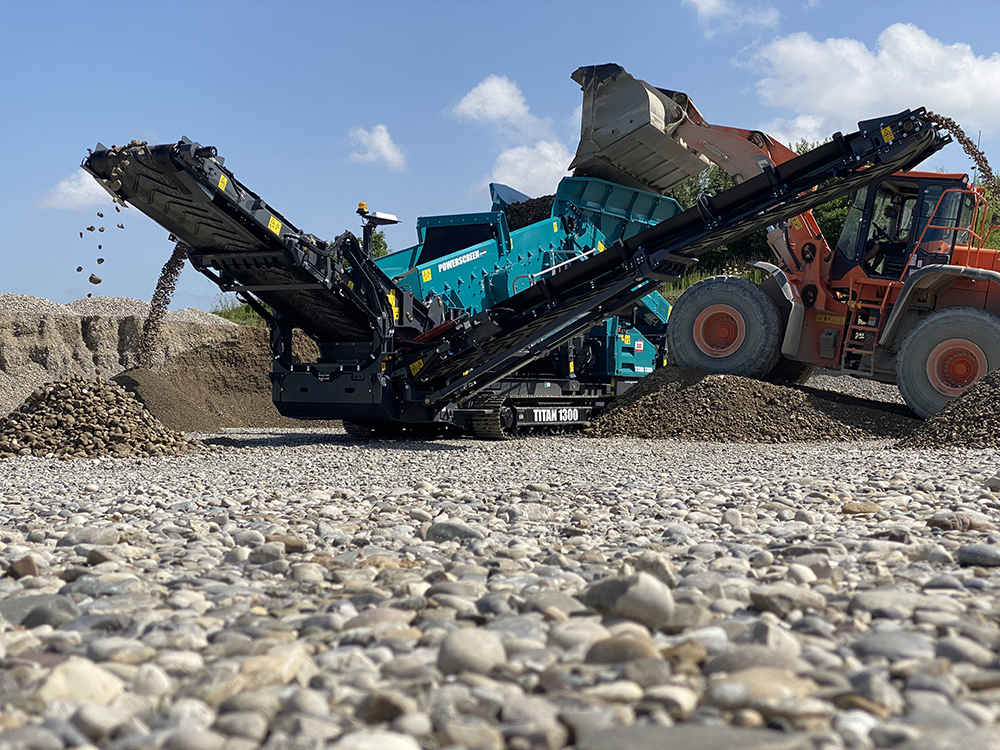
He adds that the Titan range has been specifically designed as a more cost-effective machine to cater for those secondary or recycling screening applications.
“It has both a range of features and unrivalled performance that will increase the bottom line of any of its owners,” Loughran says.
The Titan 1300 is designed to pack a punch while having a compact footprint for ease of transport. Comprising an extra-large-capacity twin drive feeder at the rear of the machine with an 1100mm feeder belt, the feeder comes with hydraulically folding extensions to allow for side loading of the machine, can withstand heavy loads due to having impact bars under the belt in place of impact rollers, and has a folding rear door to allow for maximum versatility.
The highly aggressive screenbox has a total screening area of 10m2 (13.1yd2). Complete with a variable angle to allow for tailoring of the machine to various applications, the screen also has a lift-up functionality at discharge to ensure quick and efficient mesh changes, of which there is a huge range available as well as other media including punch plate, 3D punch plate and finger screen.
Side conveyors have wide fines belts and excellent stockpiling height to rival any other comparable machine on the market. A single lever set-up results in a very quick set-up time, and while the side conveyors can be configured as either standard or fully reverse from the factory, they can also be fully configured onsite to allow both conveyors out of the same side of the machine. Each conveyor has its own independent speed control, to tailor each conveyor to its loading. Meanwhile, the Titan 1300’s tail conveyor has the optimum combination of rollers and impact slips for durability while maximising the power draw of the machine, and has a fold to minimise transport length, fitting onto the smallest of European trailers.
The Titan 2300 is a completely new machine to Powerscreen in terms of concept and design, encompassing the largest belt feeder in any of the Powerscreen range at 1500mm (60”), with twin gear box drive and a combination of impact bars and impact rollers for optimum power usage. It also has the steepest hopper ever designed by Powerscreen to enable ease of emptying without bridging, with an eye specifically on the recycling market. The body of the hopper is manufactured with wear-resistant steel and a rear folding door to take a crusher feed. A low-speed feeder is fitted as standard, with a medium speed option for low-density material which, while sacrificing some torque, can run at up to 50% faster than standard.
Powerscreen says that, as with all its screens, the heart of the machine is within the screenbox itself. Neil Robinson, product and applications manager, comments: “Using our expertise gained from our last few projects such as the Warrior 2100, the Chieftain 2200 and the Chieftain 1700X, together with a mix of computer-based design and analysis and real-world testing, we have crafted a screenbox that will match and exceed any similar-sized single shaft screen in the market. Using a high-specification drive, the machine is able to take on a wide range of applications from smaller direct feeder, secondary feed after a crusher to lightweight recycling market.”
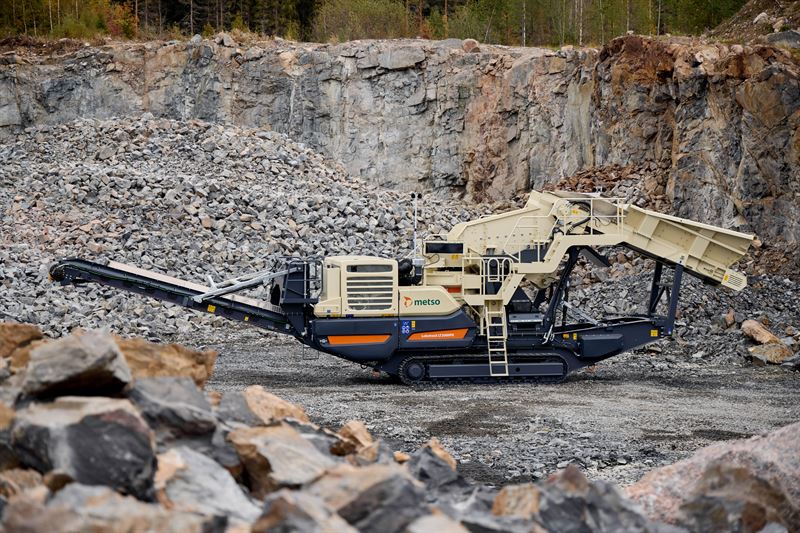
The machine also has an adjustable screen angle, with media options including mesh (both woven and welded), punch plate, 3D punch plate, finger screens and finger and punch plate combination. Finally, the Titan 2300 has full-access walkways down both sides of the screenbox, uniquely designed to be fully regulatory compliant.
Hybrid Dual Power is also available on the Titan 2300, being powered using standard diesel or connected to an external electricity supply once the machine has been set up.
The side conveyors are standardised at 1050mm (42”) plain belts, with chevron belts also available if required. With a generous stockpiling height, the plant is fully customisable both in the field and from the factory with conveyors that can be reversed, can be discharged on the same side, or can be converted to a two-way split. To cater for the recycling market, there is an option for magnetic head drums on all three conveyors to carry the metallic material back down the conveyor and away from the stockpile. The tail conveyor features a 1600mm chevron belt, the widest in the Powerscreen range, with a combination of impact slips and rollers as standard to remove the need for full-length skirting and reduce the power draw of the conveyor.
Similar to the Titan 1300, the large tracks of the Titan 2300 ensure a stable working platform but have a high tracking speed to allow highest versatility onsite.
Powerscreen says that the Titan 1300 and Titan 2300 have both undergone rigorous testing in various applications to ensure that they excel in every job they are placed in. The Titan 1300 has worked on a sand and gravel application in Germany, while the Titan 2300 has surpassed expectations in various quarries throughout Ireland as well as in a biomass application.
Sean Keenan, Powerscreen applications training manager, said: “Overall it’s fair to say that our customers have seen the Titan machines enabling them to process higher volume of quality material when compared to their previous units.”
Metso Outotec is launching two new models to the Lokotrack mobile crushing and screening series suitable for aggregates customers.
The new Lokotrack LT200HPX and Lokotrack LT220GP compact mobile cone crushers, available globally from October 27, are claimed to bring up to 30% more capacity and added flexibility compared to earlier models.
The launch models have a range of new features that are designed to improve the efficiency of customer’s operations. They are built on the same new chassis and customers can choose between the two cone crusher types and various optional features based on their specific needs. The Lokotrack LT200HPX is equipped with a two-deck pre-screen designed to provide more capacity.
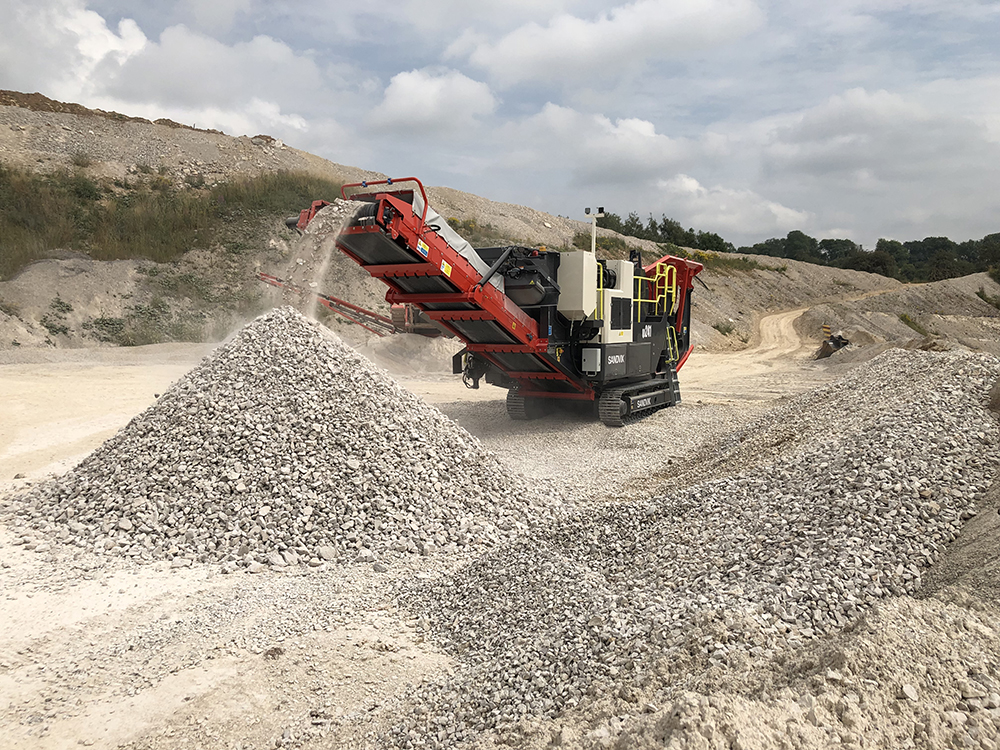
Heavy-duty chassis and wide conveyors facilitate high throughput, and a direct v-belt crusher drive ensures high fuel efficiency. Service and transportation are facilitated with extensive service platforms that fold down for transport. LT200HPX can be combined with Lokotrack LT106 and LT116 jaw crushers and Lokotrack ST3.8 and ST4.8 mobile screens.
The Lokotrack LT220GP provides additional crushing power and can be equipped with a pre-screen or with a belt feeder. The LT220GP is designed to fit well with Lokotrack LT120/LT120E mobile jaw crushers and ST4.10 mobile screen for high-capacity aggregates production.
“The new models and our end-to-end offering displayed in the Lokotrack Liveroom, demonstrate our focus on improving aggregates customers’ operations and bottom line,” said Kimmo Anttila, vice president, Lokotrack solutions at Metso Outotec. “With these new models of 300 metric tons per hour capacity and 40 metric ton transport weight, the customers have even more choice and flexibility to select from our cone crusher range. Lokotrack is a sustainable and future-proof choice for any type of aggregate production.”
Metso Outotec offers extensive services and parts support for Lokotrack, including for example spare and wear parts recommendation lists and kits, full container load parts service, inspections and extended warranties and the Metrics remote-monitoring solution.
Terex-owned EvoQuip has been celebrating five successful years in business via a virtual hour-long celebration attended by almost 100 distributors around the world.
Launched at Hillhead in 2016 to bring a simplified range of equipment to the crushing and screening industry, EvoQuip claims to have now grown to become one of the top three compact crushing and screening brands in the world.
Starting out with the Bison 35 crusher, capable of outputting up to 30 tons per hour, EvoQuip has introduced a range of innovative new products with the Cobra 290R now being the biggest crusher in its range, capable of outputting 320 US tph.
On the screening side, EvoQuip’s products have evolved to encompass the Harrier 220, a small and robust machine designed for recycling, composting, topsoil, landscaping, and contract building industries, capable of outputting 90 US tph, to the highly aggressive scalping screen Colt 1600, which was built upon the features which have made the Colt 1000 a global success. The Colt 1600 is the largest screen in the EvoQuip range and can process up to 661 US tph, depending on application.
EvoQuip has appointed Moerschen Mobile Aufbereitung as its authorised distributor for Western Germany.
Moerschen will supply the full range of equipment from Northern Ireland-based EvoQuip including compact crushing, screening and conveying equipment, genuine spare parts, and machinery maintenance throughout the West of Germany.
Moerschen is an expert in the mineral processing and extraction industry, moving into the mobile crushing and screening world in 2015. The company offers a one-stop spot for customers, with expertise in service, maintenance, construction, production, engineering, mobile technology, rental and electrical engineering.
Jamie Mairs, territory manager at Terex-owned EvoQuip, said: “Moerschen have a wealth of experience in the industry and are a welcome addition to the EvoQuip family. Focusing on Western Germany allows them to build strong relationships with their customers and provide superior support for our world-class compact crushing, screening and conveying equipment.”
Ben Bennett Jr. took delivery of its fifth mobile crushing and screening unit – a QJ241 model - from Sweden-based Sandvik for its quarrying operation in Derbyshire, UK, in July. These units are used to crush limestone to produce high-quality grades of calcium carbonate for a variety of applications, including the pharmaceutical industry, and is commonly used in the manufacture of toothpaste.
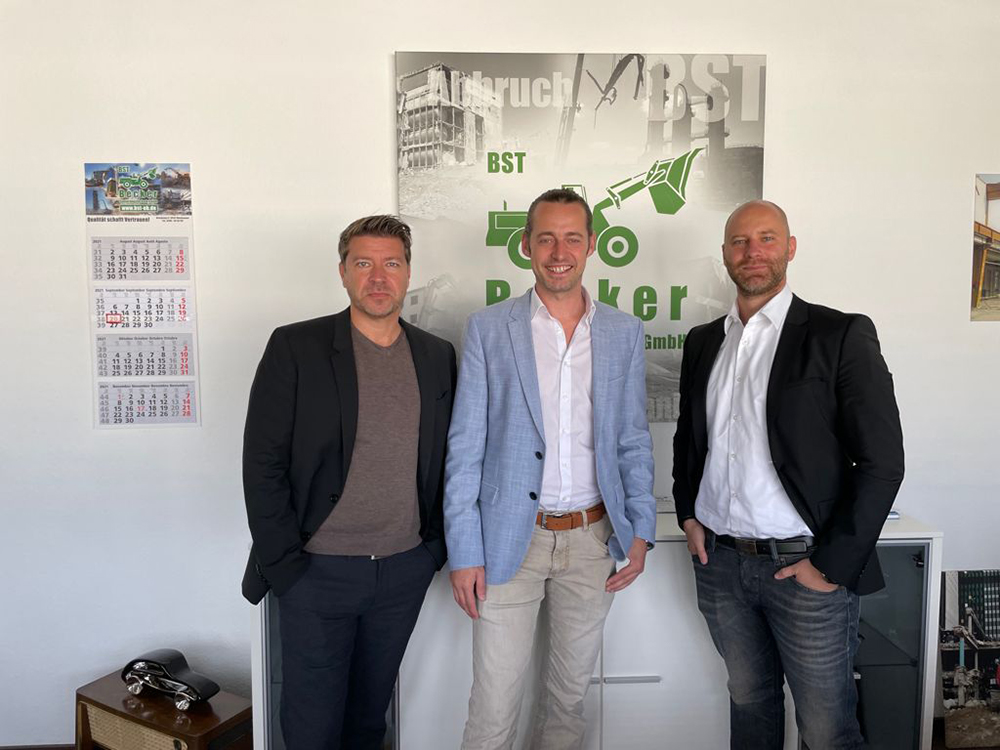
Ben Bennett Jr. is a family-run business, which was founded in 1883. The company currently owns and operates a steel rolling mill and a limestone quarry, both of which were acquired by Ben Bennett Jr. in 1935. Its head office is located in Rotherham, South Yorkshire, and its quarry, Grange Mill Quarry, is situated in Derbyshire. The company employs around 45 people at the quarry and there are two shifts during the day and night to keep up with demand. Its services include the production of aggregates and bulk tanker products for supply and transport to a wide variety of industries, including pharmaceuticals, food, rubber, glass, plastics, sealants and many others, and it exports globally.
Grange Mill Quarry lies in the White Peak of Derbyshire which is composed mostly of several types of limestone deposited during marine conditions in the early Carboniferous Period around 330 million years ago. Limestone, a sedimentary rock, formed and accumulated in clear, warm, shallow seas with localised reef complex formations. The limestones are composed of the shells of organisms which are made up of the mineral Calcium Carbonate (CaCO3) which lived in these tropical environments.
The Grange Mill deposit lies in the Bee Low Limestones which have typically thick beds and are of high chemical purity. Very few complete fossils are found in the deposit and there are no mineral veins to contaminate the limestone. This makes the material of high quality and due to its softness and low silica content, is ideal for grinding to powder and granules for use in a wide variety of products including glass production, animal feeds, rubber, sealants, carpets & adhesives. Also widely used in the pharmaceutical industry, the high-quality grades of calcium carbonate are used as an effective dietary supplement, antacid and an ingredient in baking powder and toothpaste. The quarry supplies approximately 50,000 tonnes a year to the pharmaceutical industry.
To process the limestone, the material is drilled, blasted and processed by the mobile crushing and screening plant supplied by Sandvik. Ben Bennett Jr. first invested in a Sandvik unit back in 2013 and has purchased two screens, two crushers, and also a static screen over the years. Its current QJ241 mobile jaw crusher is set at a CSS of 75mm and crushes the feed material down to 40mm. This is then fed into a QA331, then a QA140 screen for processing down to 40–20mm, 20–10mm and -10mm.
Needing to upgrade and replace its six-year-old mobile jaw crusher, Ben Bennett Jr. contacted Sandvik for the supply of a new unit. Andy Rawson, company director, commented: “With proximity to the customer support centre, this was a major gain for the supply of parts and local service whenever required.
“The aftermarket support has been very good. People come out whenever we have needed assistance. A lot of the work we can now do ourselves as our operators are familiar with the equipment. That’s one of the reasons we continue to buy Sandvik as you don’t have to start back at square one.”
The new QJ241 will come with Sandvik Optitooth jaw plates. These are included as standard on all Sandvik Q-Range jaw crushers for extended life, increased throughput and reduced fuel consumption.
The new model also comes fitted with Sandvik My Fleet remote-monitoring system as standard with 7-years-complimentary data access. Access to a wide range of live machine data will help to minimise operator intervention, enable planning of service and maintenance schedules thereby maximising uptime, and achieve optimum output at all times. These new features are in addition to the standard features of the QJ241. These include hydraulic drive, enabling the crusher to start under load; and hydraulically adjustable jaw setting to maximise output and jaw-level sensor to control the feed rate into the crusher with minimal intervention.
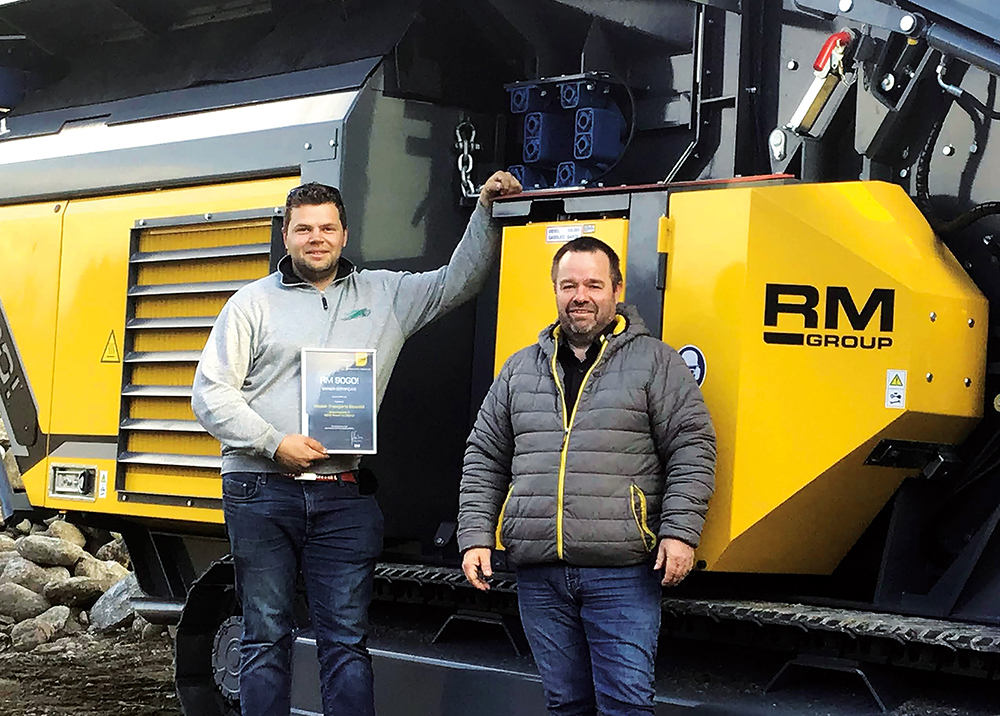
The QJ241 is also fitted with the latest emissions-compliant engine, dust-suppression spray bars and onboard water pump as standard to minimize dust. Sandvik says these are important factors for Ben Bennett Jr. due to its location on the boundary of the Peak District National Park. The quarry operator is committed to maintaining and protecting the biodiversity of the area and employs consultants to monitor its environmental impact on the local environment.
Rubble Master and its customers have been celebrating three decades of the Austrian company’s involvement in the crushing and screening market.
Linz-based Rubble Master was founded on 18 September 1991 and large corporations, family-owned businesses and one-man companies use its advanced technology crushers and screening equipment.
The company commented on the anniversary: “Unfortunately, due to the current COVID-19 situation we have no possibility to celebrate with all of you in Linz. However, we keep our fingers crossed that we can toast on 30+1 years in 2022.”
Helmut Hauser, owner of Hauser Transporte based in Stumm, Austria, bought his fourth RM crusher - an RM 90GO! - in spring this year. The machine was handed over to him by Max Keplinger, RM account manager for Tirol and Vorarlberg.
“At RM, the product is just right, you receive good service and you have the personal contact,” said Hauser. “I will definitely stay with Rubble Master if I know that I can rely on everything like that.”
Hauser is particularly enthusiastic about the single-deck mesh screen and the pivoting refeeding belt: “The mesh screen is easy to operate and can be transported together with the crusher. We simply unload our RUBBLE MASTER at the job site and can start crushing.”
The RM 90GO! crusher recycles C&D waste, concrete and asphalt around 500 hours a year, and granite or limestone for another 500 hours. RM says that, due to their compact size, its crushers are also ideal for job sites that are difficult to access, as is evidenced in its use by Hauser Transporte at the Hintertux glacier, where rock was processed to produce road gravel.
Hauser entered the processing business in 2001 when they purchased an RM 80. This area now accounts for 20% of the firm’s business and the family-owned company now employs 40 people.
RM customer Günter Prast, MD of Halbeisen & Prast KG in Dornbirn, says: “Service has an extremely high priority at RM, who have had a 24-hour service hotline since the beginning, something very few suppliers offered 20 years ago. Every spare part arrives within 24 hours, which is really sensational.”













